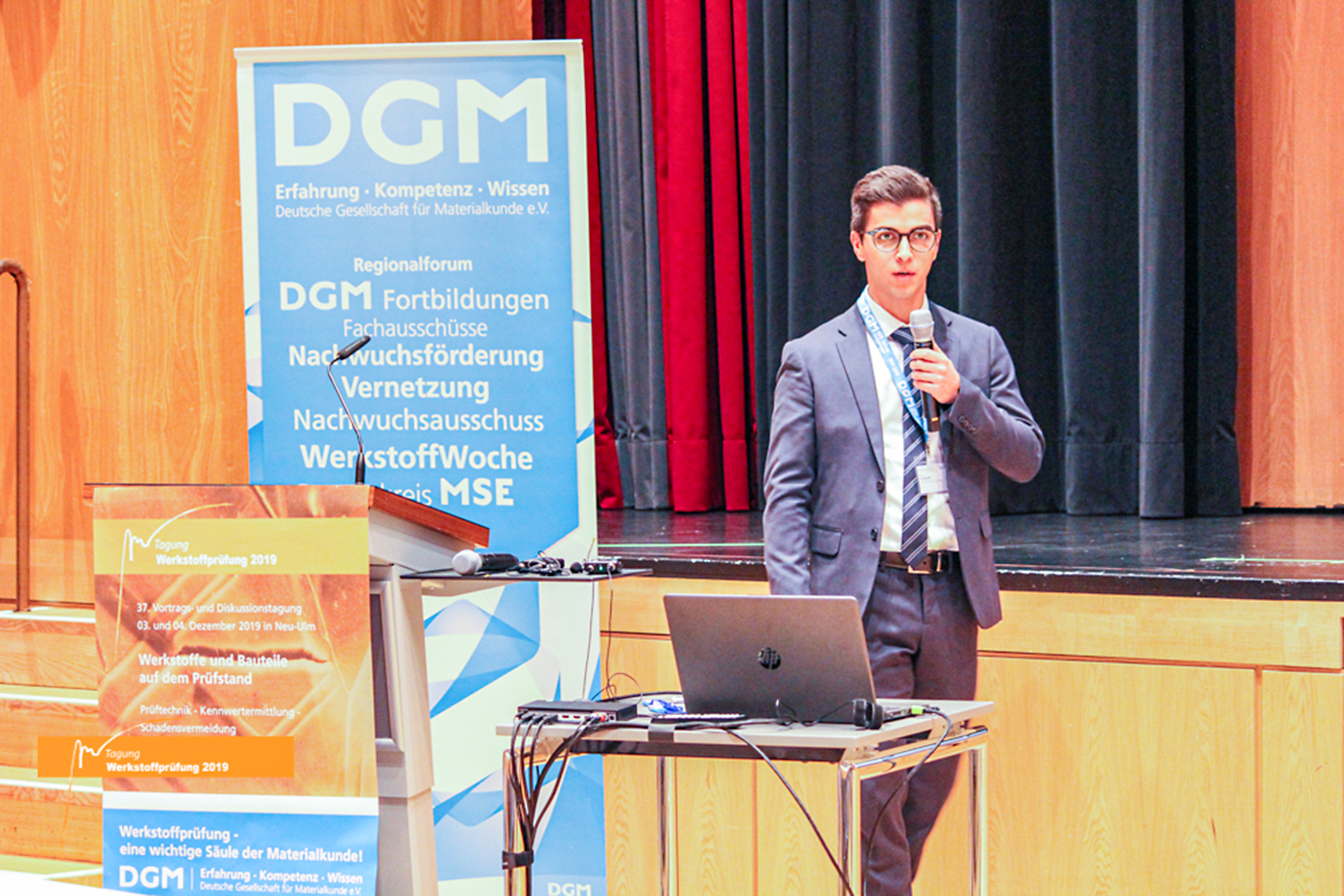When steel gets tired A short portrait of Marcel Grabowski from the Research Training Group 2075
The Research Training Group 2075 ” Modelling the constitutive evolution of building materials and structures with respect to aging” in the Core Research Area “Future City” at Technische Universität Braunschweig investigates new methods to study ageing processes in buildings. It ranges from the classical topics of civil engineering to the methods of artificial intelligence. Marcel Grabowski is one of twelve PhDs who are doing research in the Research Training Group. “Early detection of material fatigue in structural steel by means of optical full-field strain measurements” is the subject of his research project. We introduce Marcel Grabowski in a short portrait.
Who are you and what is your research topic?
I studied civil engineering at the TU Braunschweig and was already very interested in structural steel construction during my studies. During my work as a student assistant, I have already gained experience in the experimental field at the Institute of Steel Structures and have thus found my way into research.
Which research question are you working on?
I am investigating whether it is possible to predict the damage due to material fatigue in structural steel by means of full-field strain measurements on the surface before a crack develops.
What inspires you about your research?
The possibility to create bases for future detection methods, which could influence wide areas of civil engineering.
Why is your topic relevant to the Future City?
Fatigue is a key factor in infrastructure design. The early detection of damage can make the maintenance of bridges, for example, more economical and easier to plan. Thus, closures or restrictions of the infrastructure can be reduced.
What is special about participating in the Research Training Group “Modelling the constitutive evolution of building materials and structures with respect to aging”?
The direct cooperation between experimental and theoretical research work. In addition, the regular exchange with doctoral students from other disciplines in the Research Training Group constantly provides new input and broadened perspectives on my own research.

